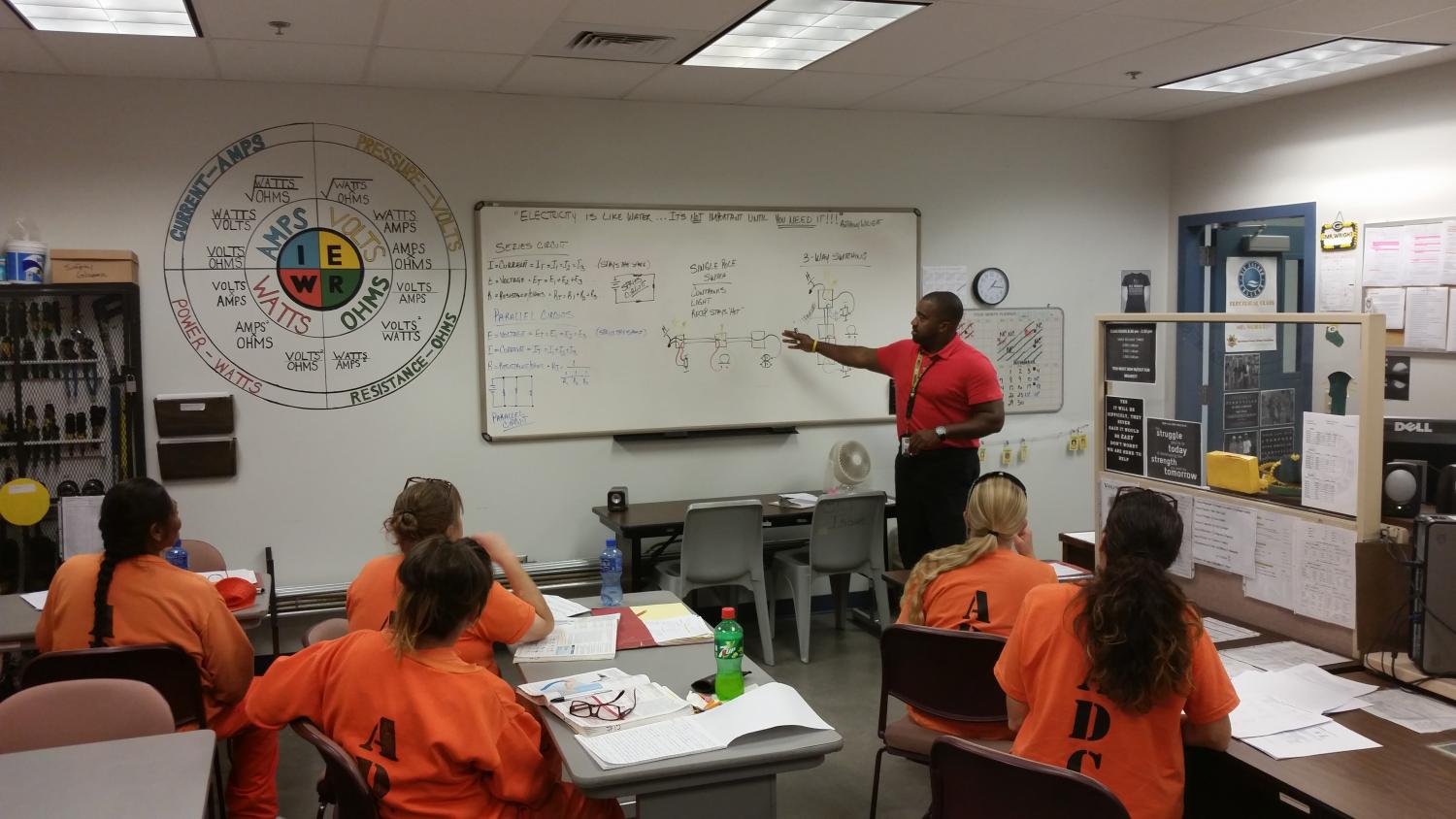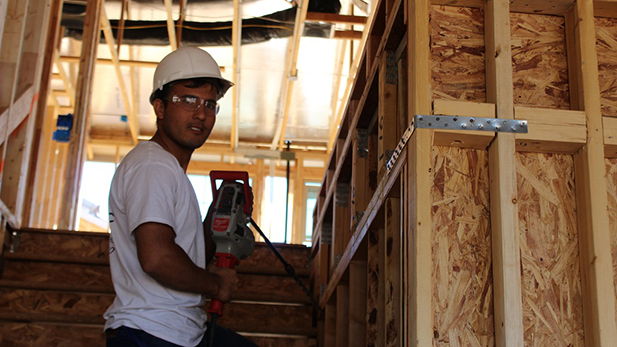 Anthony Wright teaches five classes a week at Arizona State Prison - Perryville Complex.
Anthony Wright teaches five classes a week at Arizona State Prison - Perryville Complex.
A short supply of construction workers with specialized skills has resulted in significant impacts on both the turnaround time and bottom line of homebuilding projects in the Phoenix metro area, leading some homebuilders to seek different solutions to fill that gap.
Just before the housing bubble burst in 2008, a five-bedroom house might take about three or four months to finish, said Bob Dalton, production manager with Meritage Homes. That’s no longer true.
“Our homes are being built in four to five months. There are builders quoting … up to 10 months.”
The Phoenix housing market is in recovery mode. New home starts in the area are up by almost 250 percent from the height of the recession in 2008, and demand is increasing. Builders are having trouble keeping up.
“They’re selling them faster than we can build them,” said Toby Thomas, president of the state-based electrical subcontractor Austin Electric. “Unfortunately the workforce just hasn’t kept up with the demand. There is a significant gap right now.”
“We’re just not seeing a lot of vocational talents coming out of the high schools and community colleges anymore” - Toby Thomas
At current staffing levels, Thomas said, his company is often three days behind on jobs. When other subcontractors experience a similar delay, the overall building process slows significantly.
Beyond electrical workers, fields like masonry, plumbing and even framing are seeing shortages, too. Part of the problem is that not enough high school students are interested in these careers, Thomas said.
“We’re just not seeing a lot of vocational talents coming out of the high schools and community colleges anymore.”
But it’s not as simple as that, according to Dennis Hoffman, an economist at Arizona State University. When the economy crashed, many skilled workers left the industry, and most of those workers moved on to different pursuits, he said.
Wages for skilled laborers in Arizona are low compared to neighboring states, Hoffman added. And while builders say they wish they could fix this problem by just offering employees more money, they're already working on slim profit margins in the Valley. The housing market here is not very elastic in terms of price, so an increase of just $10,000, many builders argue, can price them out of the competitive range.
And then there’s Arizona’s political climate. Hoffman cites anti illegal immigration laws like Senate Bill 1070 and regulations requiring employers to use the E-verify system when hiring, as examples.
“Available labor, especially from south of the border, especially geared toward construction was made much more difficult for contractors to obtain.”
This shortage has led to certain creative steps on the part of homebuilders. Austin Electric, for example, is now partnering with several organizations to train refugees to be electrical workers, like Nasrullah Shinwari, who used to be an interpreter for the U.S. Army in Afghanistan.
“We were faced with attack. We were faced with fighting. But this job is easy and not danger. That’s why I like it.”
 Nasrullah Shinwari works with Austin Electric to add electrical wire to a five-bedroom house before drywall is added.
Nasrullah Shinwari works with Austin Electric to add electrical wire to a five-bedroom house before drywall is added.Other builders are relying on Rio Salado College’s incarcerated re-entry program.
The program is so popular at the Arizona State Prison Perryville Complex that there’s a six-month waiting list at the women’s prison.
“It’s definitely something I want to do when I’m released,” said Ashley Roberts, an inmate and student who has almost finished the electrical curriculum.
Despite some the assumption that companies are leery of hiring people with felonies on their record, contractors are just as eager to participate as the inmates, many of whom have a job waiting for them as soon as they’re released.
“You just have to show up and want to work and take advantage of the opportunity given to you,” said Roberts.
Austin Electric President Thomas said these programs are working well for his company. The workers are reliable, he said, and without them he’d be running 30 days behind on jobs rather than just three.
“They’re all very motivated. They’re hard workers. They’re very dedicated. We’ve just been expanding on it ever since.”

By submitting your comments, you hereby give AZPM the right to post your comments and potentially use them in any other form of media operated by this institution.